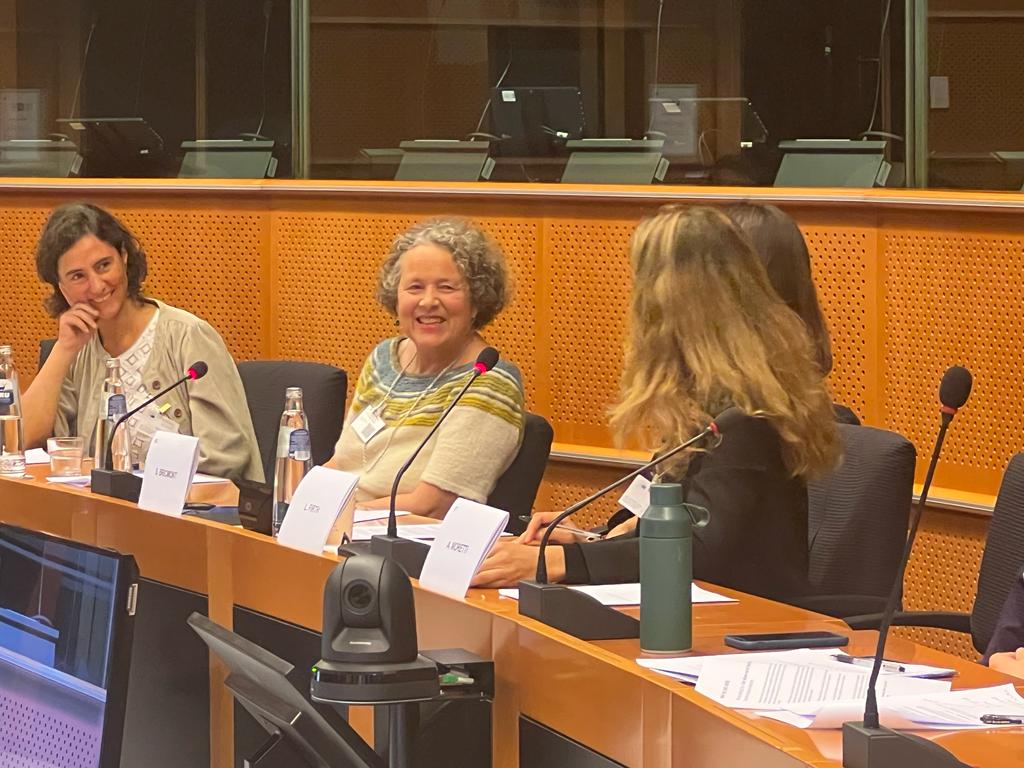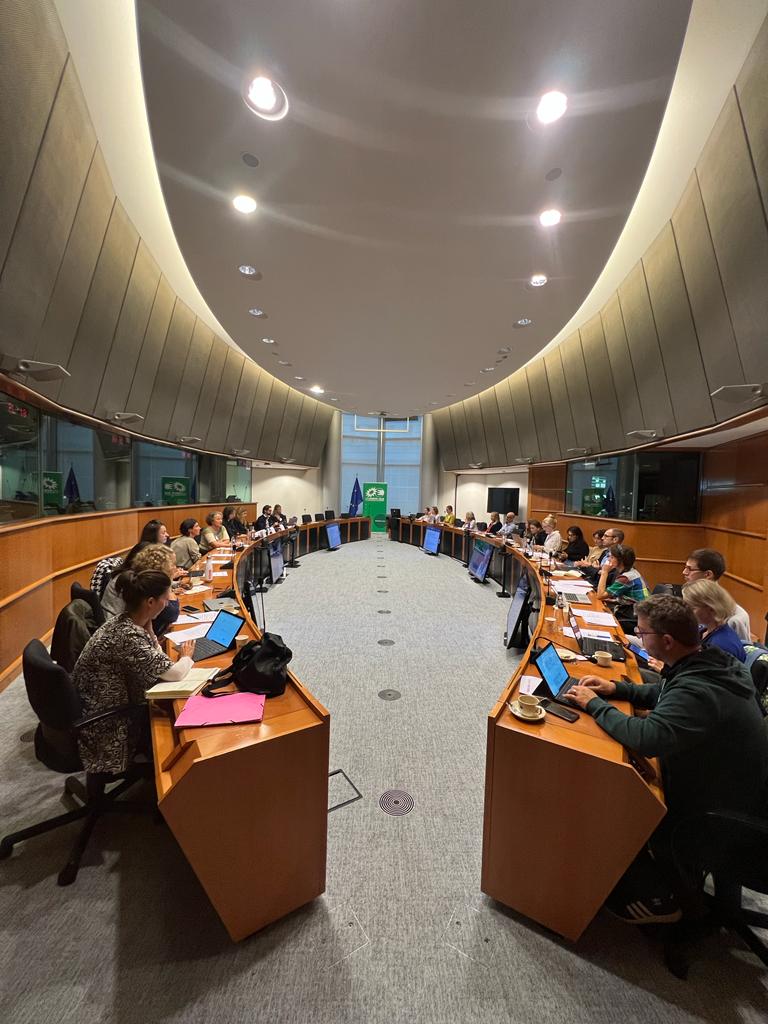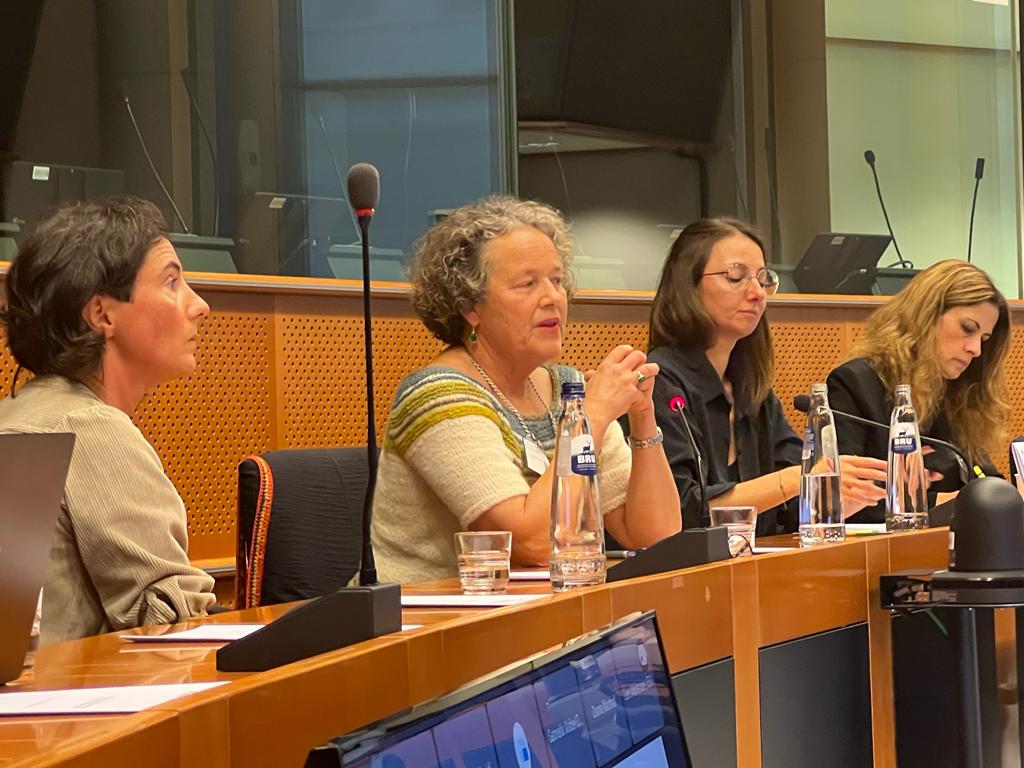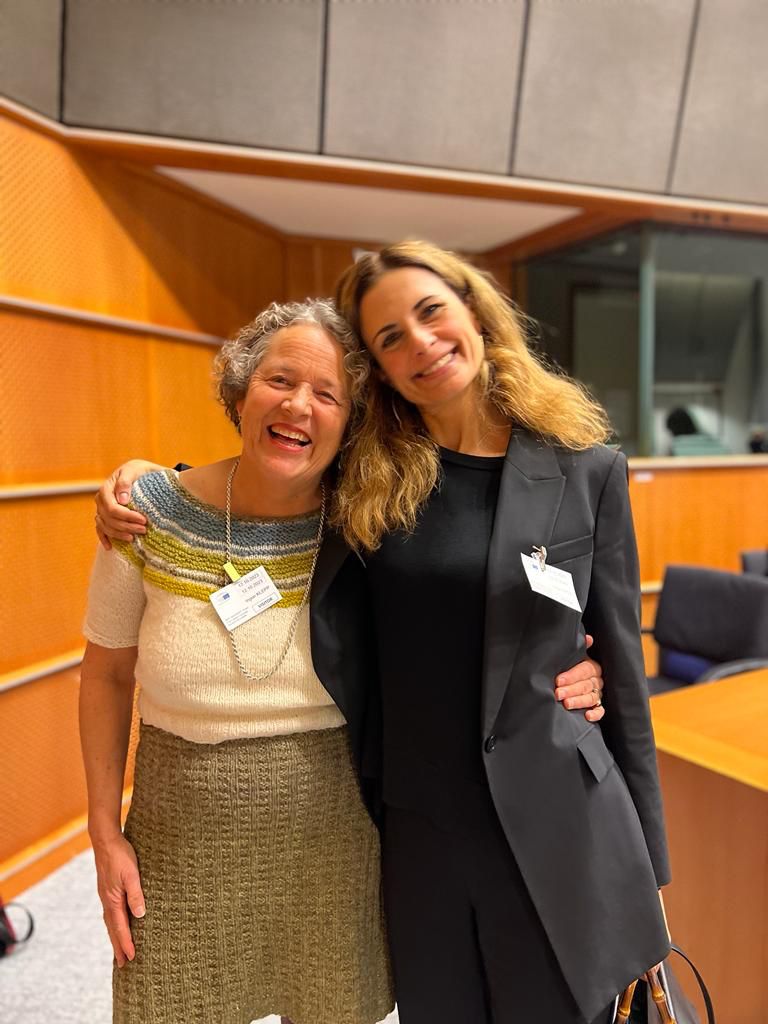EcoAge Roundtable in Brussels: A fair phase-out of fossil fuels from the fashion industry

The ethical issues are often discussed separate from environmental issues, it is high time they are discussed in the same room. Therefore, a huge thanks to EcoAge who arranged an important roundtable, and in the Parliament in Brussels, with the heading Calling for a fair phase-out of fossil fuels from the fashion industry.
Livia Firth, founder of EcoAge, introduced and moderated the roundtable. The will to find a common solution for the two issues was the most important element in the meeting, namely a just transition and the phasing out of the over-reliance on synthetics or fossil fuels in fashion. This was manifested with an alternation between people who worked in the different fields and with different ways in to the themes on the agenda. The seminar’s first two presentations were both from the Global south, Betterman Simidi Musaia and Yayra Agbofah, from Ghana and Kenya, virtual presentations that so obviously show the necessity of talking about a plastic reduction, and system change towards more global justice as one and the same. It was very clear from their talks that the environmental and health consequences are grotesque in the countries who receive our unwanted clothes and footwear.

While the fashion industry is heavily reliant on fossil fuels for energy and transport, what is less known is that most of the clothes we wear are also made from oil and gas. Synthetic fiber production uses the equivalent amount of oil per year as the entirety of Spain, and polyester production alone produces the equivalent of 180 coal-fired power-stations annually. What is more, synthetic fibers and plastics are emerging as the fossil fuel industry’s cash-cow – accounting for up 95% of future growth in demand for oil.
There is broad agreement and many good perspectives that the change we need is a systemic change and not a change of individual products. The systems perspective combines the need for change with a global equality perspective, and the need for reduction in quantity and plastification.

The presentation from SIFO was the one that most directly included a criticism of the EU strategy. Irene Maldini explained why the durability discourse falls short for clothing, by referring to research on clothing consumption as a system. This is based on Irene’s own work with clothing consumption and the ongoing work in Change. Ingun Klepp took over the baton by presenting the findings in Plastic Elephant (link here), with an emphasis on how the EU strategy’s emphasis on improvements at product level supports plastification and avoids addressing the main problem: Quantity. In conclusion, she explained how it is possible through regulation to target quantity, and used TPR (link to Targeted Producer Responsibility here) as an example of this. For all good regulation, knowledge is needed. It is therefore urgent to understand the problems better and develop methods suitable for this.
Through the EU’s focus on material durability (synthetics are stronger, and durability leads to accumulation if production volumes are not addressed), weight (synthetics are much lighter) and recyclability (plastics are easier to recycle, and recyclability promotes monomaterials, hence more plastics used), among others.
Many of the participants contacted Maldini and Klepp afterwards, saying that the focus they had was something they had not seen before, with the “proof” that focusing on durability, recyclability and other parameters the EU Textile Strategy does, will increase the amount of synthetics rather than reduce the influx. Also, other aspects of EU policy that is very much ignored in the Textile Strategy was also mentioned – how lack of a holistic approach is problematic. If we are to have “good clothes”, policy really needs to address the right issues.
Saskia Bricmont, MEP, who is Member of the Group of the Greens/European Free Alliance and the event sponsor, was clearly very engaged in the theme and it will be interesting to see how this can be brought forward in the EU.
Using waste as a resource for knowledge seems like an important way to go, and at Waste Norway’s seminar on October 23rd (link to event here), the latest we know about waste will be presented, from Svalbard in the north and of course also from other parts of Europe.
